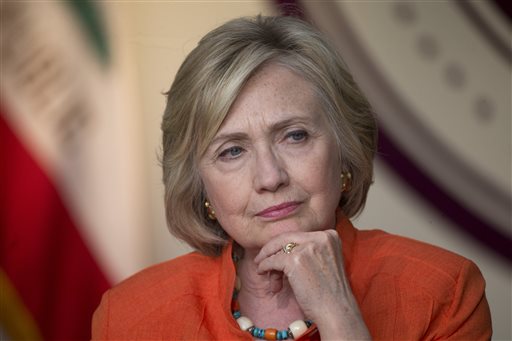
We certainly wrote a lot about it at the time she said it. That quote from Democratic presidential candidate Hillary Clinton that was so taken out of context by the coal industry, Trump supporters and West Virginia political leaders (see here, here, here, here and here).
Now, more than 10 months after the general election, Clinton herself has a few things to say about that comment. There’s a whole chapter about it in her new book, “What Happened.” She called the chapter, “Country Roads” and said that it was the campaign comment that she regrets the most from the entire race:
Stripped of context, my words sounded heartless. Republican operatives made sure the clip was replayed virtually nonstop on Facebook feeds, local radio and television coverage, and campaign ads across Appalachian for months.
… The point I had wanted to make was the exact opposite of how it came out.
As Clinton recounts, she was answering a question about how she would win support from working-class whites who normally vote Republican. Here’s the full answer:
Instead of dividing people the way Donald Trump does, let’s reunite around politics that will bring jobs and opportunities to all these under-served poor communities. So, for example, I’m the only candidate who has a policy about how to bring economic opportunity using clean renewable energy as the key into coal country. Because we’re going to put a lot of coal miners and coal companies out of business, right, Tim? [That’s Rep. Tim Ryan, D-Ohio, who was in the audience]
And we’re going to make it clear that we don’t want to forget those people. Those people labored in those mines for generations, losing their health, often losing their lives to turn on our lights and power our factories. Now we’ve got to move away from coal and all the other fossil fuels, but I don’t want to move away from the people who did the best they could to produce energy that we relied on.
In the book, she explains:
If you listened to the full answer and not just that one garbled sentence pulled out of it, my meaning comes through reasonably well. Coal employment had been going down in Appalachia for decades, stemming from changes in mining technology, competition from lower-sulfur Wyoming coal, and cheaper and cleaner natural gas and renewable energy, and a drop in the global demand for coal.
I was intensely concerned about the impact on families and communities that had depended on coal jobs for generations. That’s why I proposed a comprehensive $30 billion plan to help revitalize and diversify the region’s economy. But most people never heard that. They heard a snippet that gave the impression that I was looking forward to hurting miners and their families.
The book does a lot of blaming the media for all of this, and anyone who reads my blog (see here and here especially) knows I don’t really disagree with that basic point.
But perhaps another reason that most people didn’t hear about the Clinton plan to save the coalfields is that she didn’t really talk about it that much. And, of course, others in her party — I’m looking at you, Sen. Joe Manchin — want to just keep talking about coal, coal coal, as if the next boom is right around the corner. And Clinton is wrong to try to rewrite history to suggest that Sen. Bernie Sanders didn’t propose his own coalfield rescue plan (see here). President Obama had such a plan, of course, but as we’ve discussed before, it was really too little and too late and wasn’t promoted nearly enough by Obama or any Democrats.
Continue reading…



